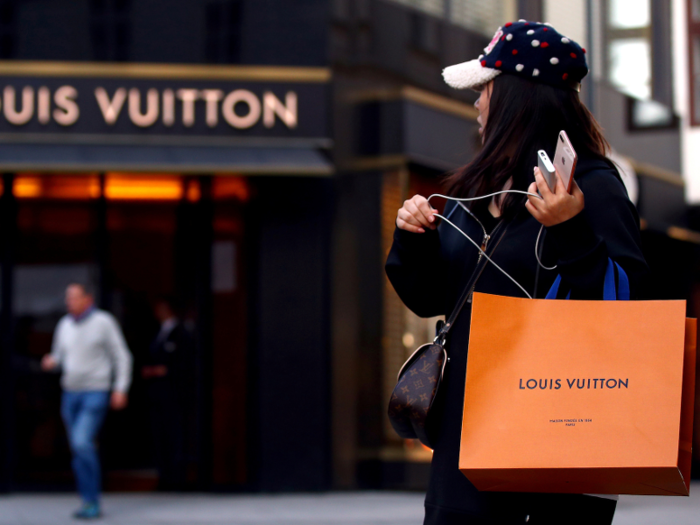- Home
- slideshows
- miscellaneous
- 17 ways life is different for millennials than for baby boomers, from crushing student loans to a disappearing middle class
17 ways life is different for millennials than for baby boomers, from crushing student loans to a disappearing middle class
Homeownership looks different for millennials — nearly one-third own a home, compared to nearly three-fourths of baby boomers. Nearly half of millennials are renting, compared to less than a quarter of boomers.

Millennials pay more a month for housing — more millennials than boomers spend over $1,000 monthly. More than half of boomers spend less than $1,000, compared to a little less than half of millennials.

Since more millennials are renting and doing so for a longer time, they're faced with climbing rents. Rents increased by 46% from the 1960s to 2000 when adjusted for inflation, according to Student Loan Hero. The current median US rent, according to Zillow, is $1,650.
Slightly more than three-fourths of millennials own a car, whereas 88% of boomers do.

Cars aren't always necessary where millennials prefer to live.
"Unlike baby boomers and their parents, who migrated to the suburbs en masse, millennials find happiness in cities," wrote Stephanie Taylor for Business Insider, citing a Regional Studies report.
Millennials who do need a car may be deterred from buying thanks to higher prices. From November 2006 to November 2016, prices for new cars increased by 5%, according to the Bureau of Labor Statistics.
Only 36% of millennials have never had student loans, compared to 61% of boomers. Nearly 45% of millennials currently have student loans, whereas a quarter of boomers do.

According to the survey, more boomers than millennials have also paid off their loans.
College tuition was more affordable for older generations, according to Student Loan Hero — it's more than doubled since the 1980s. The rising cost of tuition has led more students to take out loans — from 2000 to 2012, the percentage of students who took out student loans jumped to 60% from about 50%, according to a report by the American Academy of Arts & Sciences.
While fewer boomers have student loan debt, they tend to owe more than indebted millennials. More boomers than millennials owe over $50,000; more millennials than boomers owe less than $50,000.

In 2017, student-loan debt hit a record high of $17,126 per graduate who took out loans, Business Insider reported. In 2018, the national total of student-loan debt was $1.5 trillion, according to Student Loan Hero — and more than 44 million Americans share the burden of carrying it.
Nearly half of indebted millennials don't think college was worth the student loan debt, compared to a little over a quarter of boomers — 66% of the latter think college was worth it, compared to 53% of millennials.

The rising cost of college may help explain its arguably weakening value — one of the reasons driving the price hike is the demand to go to college, Richard Vedder, an author and distinguished professor emeritus of economics at Ohio University, previously told Business Insider: "The rewards for college have expanded and grown from 1985 to a little after 2000 and sort of leveled off in the past decade."
The "advantage of a degree today is less than it was 10 years ago, because of the rising cost," Vedder said. "The return on investment has fallen."
Millennials aren't as prepared for retirement as boomers — more than half don't have a retirement account, but more than half of boomers do.

Of those with retirement accounts, boomers have more saved. The majority of millennials have less than $25,000 saved, while the majority of boomers have more than $25,000 saved. Almost half of boomers have over $100,000 saved, compared to only 8% of millennials.
Boomers have naturally had more time to save, but it doesn't help that the Great Recession has put millennials behind. Because they bore the brunt of it, older millennials have had a harder time saving for retirement, Jason Dorsey, a consultant, researcher of millennials, and president of the Center for Generational Kinetics, previously told Business Insider.
This is particularly true for millennials born in the 1980s, who are at the greatest risk of becoming a "lost generation" for wealth accumulation, according to a 2018 report by the Federal Reserve Bank of St. Louis.
However, nearly 46% of boomers aren't currently putting aside money each month for retirement, whereas only 35% of millennials aren't. Millennials who are putting money aside regularly also save more money a month for retirement than boomers do.

While some baby boomers may already be retired and aren't saving much for retirement, these results show that millennials have learned from the economic setbacks beyond their control. They know they're financially behind and are working to catch up.
But more millennials than boomers expect to never retire at all — around 9%, compared to 4% of boomers. And 18% of millennials don't know when they'll retire, compared to 13% of boomers.

"Older millennials are often realizing they're going to have to play catch-up with their finances if they want to ever be able to retire, but some of them have already decided that they likely will not ever be able to afford to retire," Dorsey told Business Insider.
However, some are more hopeful — more millennials than boomers expect to retire early. Nearly 5% of millennials expect to retire by age 45, and 6% by age 55. About 54% of millennials expect to retire between age 56 and 75, compared to 72% of boomers.
The majority of millennials and boomers have savings accounts, but more than half of millennials have less than $5,000 saved. Nearly 30% of boomers have more than $15,000 saved, whereas around 16% of millennials do.

This further highlights the catch-up game millennials are playing. Younger millennials in particular are more aware of the risk of a bad economy and being more practical when it comes to money, from saving for emergencies to contributing to a retirement account, Dorsey said.
Most millennials and boomers spend $100 to $500 a month on groceries, but more boomers spend in that price range.

More millennials than boomers also spend less than $100 a month on groceries, which indicates that they seem to budget more.
However, slightly more millennials also spend over $500 a month on groceries. Millennials could have more mouths to feed, since they're beginning to raise families, or they could also be more affluent — rich millennials tend to have a preference for pricier organic foods as part of a rise in discreet wealth.
Millennials also spend more on dining out and entertainment. Fewer millennials than boomers spend less than $50 dining out a month; more millennials than boomers spend over $50.

Over half of millennials spend more than $50 a month on entertainment, compared to 38% of boomers.
Millennials tend to value experiences over ownership of things and therefore prefer to spend their money as such. They also have a "treat yourself" mentality, in which they like to make purchases that bring them joy — for some, that manifests in the form of entertainment, according to a Fidelity report.
Only 26% of millennials pay more than $100 for healthcare a month, whereas nearly 42% of boomers do. More millennials than boomers have declined medical or dental treatment because it was too costly.

As millennials struggle to save against a high cost of living, they might night be able to afford today's health care prices as well as baby boomers can. The average annual health insurance cost per person in 1960 was $146, CNBC reported. In 2016, it hit $10,345, nine times as high when adjusted for inflation. Costs are expected to increase to $14,944 in 2023.
Millennials are also generally healthier than boomers, who are older, and thus may not have to shell out as much for premiums.
Only a little more than a quarter of millennials have a credit score of 700 or higher, compared to nearly half of boomers.

"Millennials were nearly twice as likely as boomers to say that they'd consolidate credit card debt in order to spend more and are more likely to plan on using personal loans to pay for a wedding or vacation," wrote Beth Braverman of The Fiscal Times, citing data from LoanDepot.
This, she said, might explain why millennials have lower credit scores.
Also, boomers have a longer credit history than millennials, and they're likely to have more types of credit and more open accounts, all factors that can help a credit score climb.
Roughly 28% of millennials think they're middle class, compared to 38% of boomers. More millennials than boomers think they're "poor" or "working class," while more boomers than millennials think they're "upper middle class."

More millennials might consider themselves below middle class because it's disappearing around the world — and it's "squeezing" millennials out, reported Richard Partington for The Guardian, citing the Organisation for Economic Co-operation and Development (OECD). This means millennials may not have the same opportunities as their parents, he said.
If given an extra $1,000, both millennials and boomers would prioritize using it to either pay outstanding bills, pay down debt, or save.

However, more millennials than boomers would pay outstanding bills or pay down debt — not surprising, considering the weight of their student loan debt, and the fact that they're more in debt than any other generation in history. Millennials owe $1 trillion in debt, reported Jimmie Lenz of The Conversation, citing data from the New York Federal Reserve.
Millennials are also more likely to invest the money or use it to purchase necessities or shop, but only to a small degree. Boomers are more likely than millennials to save the $1,000 or spend it on travel.
Despite economic setbacks, millennials seem slightly more positive about their finances. About 37% think they're better off than they thought they'd be 10 years ago, compared to 31% of boomers. Nearly 30% of boomers think they're worse off, compared to 28% of millennials.

Nearly 27% of millennials think they're about the same financially, compared to nearly 36% of boomers.
As Dorsey previously explained to Business Insider, while millennials got a slower start to building wealth, they're working on creating a path for financial self-reliance. ""We are overall positive on how millennials will fare financially due to baby boomers retiring, potential inheritance, and the very low unemployment rate creating near-term job opportunities," he said.
Popular Right Now
Popular Keywords
Advertisement